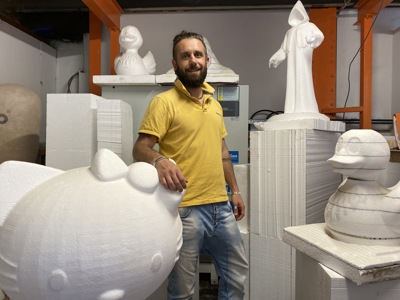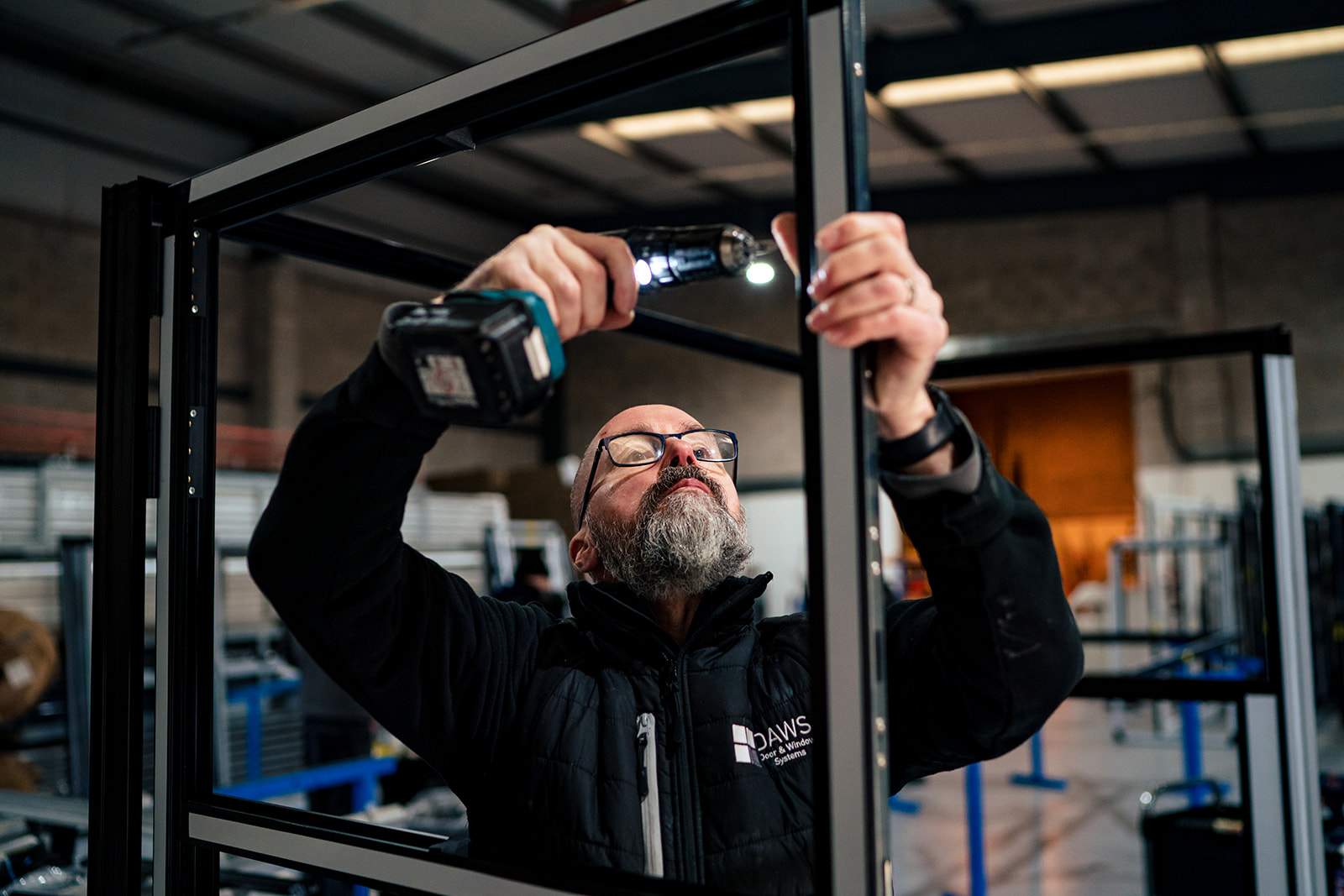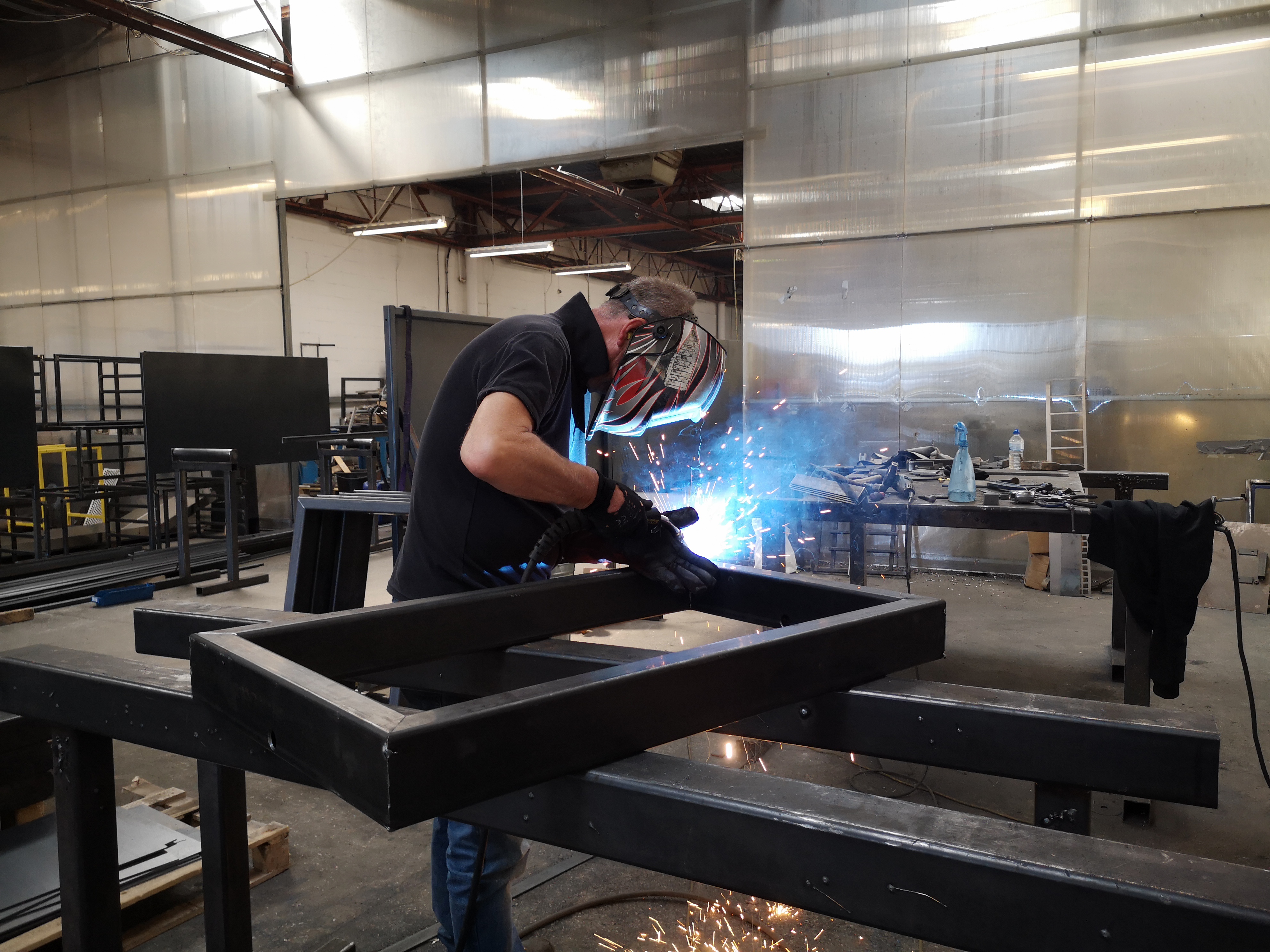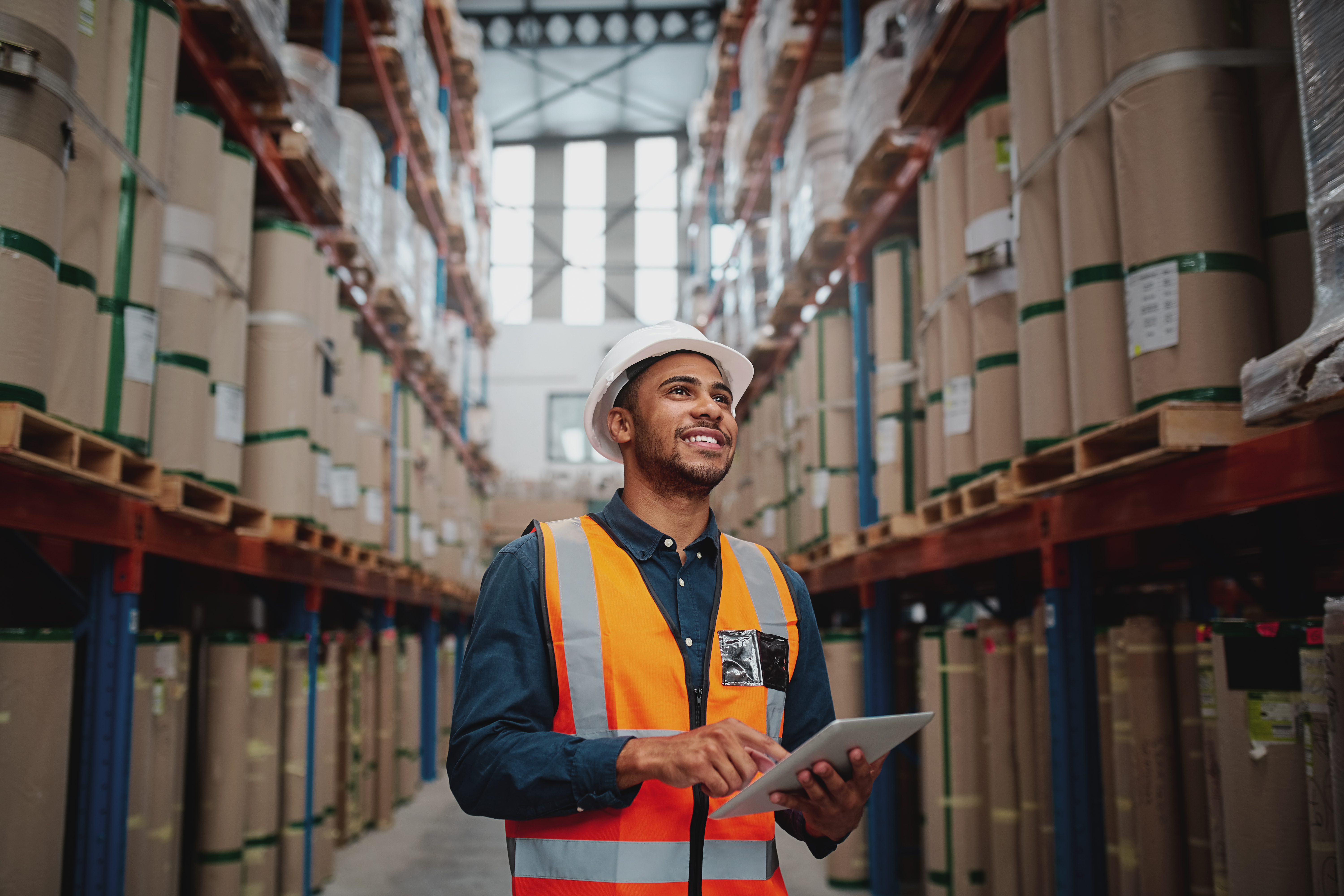
Before coronavirus, Visual Architects (VA), a designer and maker of venue interiors was experiencing growing demand for its eye-catching creations in the UK and overseas from bars, nightclubs and festival stages to restaurants, hotels and brand launches.
With the events industry in disarray from the pandemic and global lockdowns, Hyde-based VA used the opportunity to regroup, consolidate its operations, and create a plan for the future, with the support of Made Smarter.
Using Made Smarter’s Digital Transformation Workshop process VA was able to create a digital roadmap of potential solutions to its key challenges
With further support from Made Smarter, VA invested in robotics, transforming its design and manufacturing capability and bringing in-house 70% of its production.
VA can now work at much greater speed, reducing what would previously have taken seven days down to one, and increasing production capacity significantly.
The business was also able to tap into Made Smarter’s Digital Technology internship programme which matches students and graduates to businesses deploying technology projects, and took on four digital natives - three of whom have now secured permanent jobs.
Lefteris Angelidis, Managing Director of Visual Architects, believes that the timely and involved support from Made Smarter has accelerated its digitalisation by three years.
View the Case StudyMade Smarter has been rocket fuel for our company. It’s support through the pandemic and the devastating year for the events industry has helped us create a roadmap, invest in new technology and embed skills which we have no doubt will enable us to bounce back stronger and go to the next level.
Lefteris Angelidis, Managing Director of Visual Architects
One of the major opportunities that emerged from the workshop process was VA’s limited manufacturing capability which meant the business was increasingly outsourcing production.
“The biggest challenge was delivering what clients are demanding,” Lefteris explained. “For example we were limited to hand-carving sets and props, which meant a longer production time frame, more potential for mistakes, and imprecise accuracy.
“Our manufacturing was in its infancy. We were breaking large scale projects down into smaller parts by using 3-axis CNC machines and jig sawing it together.
“We knew we could achieve the level of production we were receiving from outsourcing, but we had to invest in the right technology.”
Working with Made Smarter to create a digital roadmap and strategy highlighted a number of opportunities to adopt robotics, Additive Manufacturing, and Virtual Reality technologies to help resolve our challenges.
As a first step, Made Smarter supported the investment in a 7-axis Kuka CNC machining robot aimed at bringing key elements of the manufacturing process in-house.
The digital roadmap also identified a need for new skills to make the most of the new technology.
By bringing 70% of outsourced production in-house, VA is able to reduce its overheads and increase its profit on product manufacturing.
The technology enables greater accuracy and efficiency, reducing wasted materials and energy consumption.
Robotic production has allowed faster turnaround times and safer delivery of projects, improving customer satisfaction.
Limitless customisation and improved product and design will enable VA to reach new export markets and at least double its sales over the next three years.
“Our 7-axis Kuka uses advanced robotic sculpting technology to turn any idea into a reality,” Lefteris said. “Whether a design or new concept, we can now build sculptures, décor, prototypes, models, art or other installations to an unparalleled level of precision.
“It has replaced the need for products crafted by human hand. This means we will be able to create in the digital 3D space and realise our design exactly as intended. This transforms our process from an art into a science, while retaining our company values of creativity.
“With the 7-axis machine we are able to offer more products, please more clients, generate more work, and continue to maintain our USP of unique experiences.”
Further steps will be investing in Additive Manufacturing technology to rapidly test ideas and concepts at a lower cost. Meanwhile, VR headsets will allow customers to experience design concepts in first person prior to construction.
Lefteris said: “Our aim is to become a global company with a manufacturing base in the UK which is capable of making cutting edge, high end products and new creations and innovations.
“Design and production are changing not only in clubs and festivals but across all sectors of work life and business, and we are in a position to push this even further.
“In order to grow we need to lay the proper scaling foundation and create new products. To maintain our competitive advantage the adoption of new technologies will be essential.
“Working with Made Smarter has empowered a forward-thinking can-do culture in the business.”








